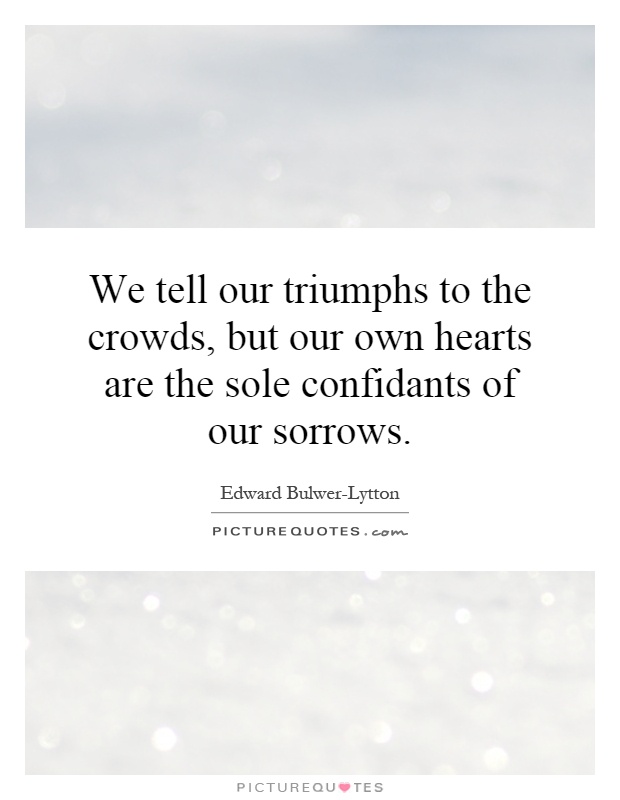We tell our triumphs to the crowds, but our own hearts are the sole confidants of our sorrows

We tell our triumphs to the crowds, but our own hearts are the sole confidants of our sorrows
Edward Bulwer-Lytton, a renowned English novelist and playwright, once said, “We tell our triumphs to the crowds, but our own hearts are the sole confidants of our sorrows.” This quote encapsulates the idea that while we may share our successes and achievements with others, our deepest sorrows and struggles are often kept hidden within our own hearts.In the context of Bulwer-Lytton’s own life, this quote takes on a deeper meaning. Despite his literary success and popularity, Bulwer-Lytton faced his fair share of personal struggles and tragedies. He experienced the loss of loved ones, financial difficulties, and health problems throughout his life. Despite these challenges, he continued to write and create, finding solace in his work and in the privacy of his own thoughts.
Bulwer-Lytton’s quote speaks to the universal experience of keeping our deepest sorrows and struggles to ourselves. While we may share our triumphs and achievements with others, our sorrows are often too painful or personal to reveal to the world. We may fear judgment or rejection, or simply prefer to keep our vulnerabilities hidden from view.
This idea is particularly relevant in today’s society, where social media and constant connectivity have made it easier than ever to share our successes and accomplishments with a wide audience. We curate our online personas to showcase the best parts of our lives, while keeping our struggles and hardships hidden from public view.
However, it is important to remember that sharing our sorrows and seeking support from others can be a powerful and healing experience. While our own hearts may be the sole confidants of our sorrows, reaching out to trusted friends, family members, or mental health professionals can provide comfort and solace during difficult times.












 Friendship Quotes
Friendship Quotes Love Quotes
Love Quotes Life Quotes
Life Quotes Funny Quotes
Funny Quotes Motivational Quotes
Motivational Quotes Inspirational Quotes
Inspirational Quotes